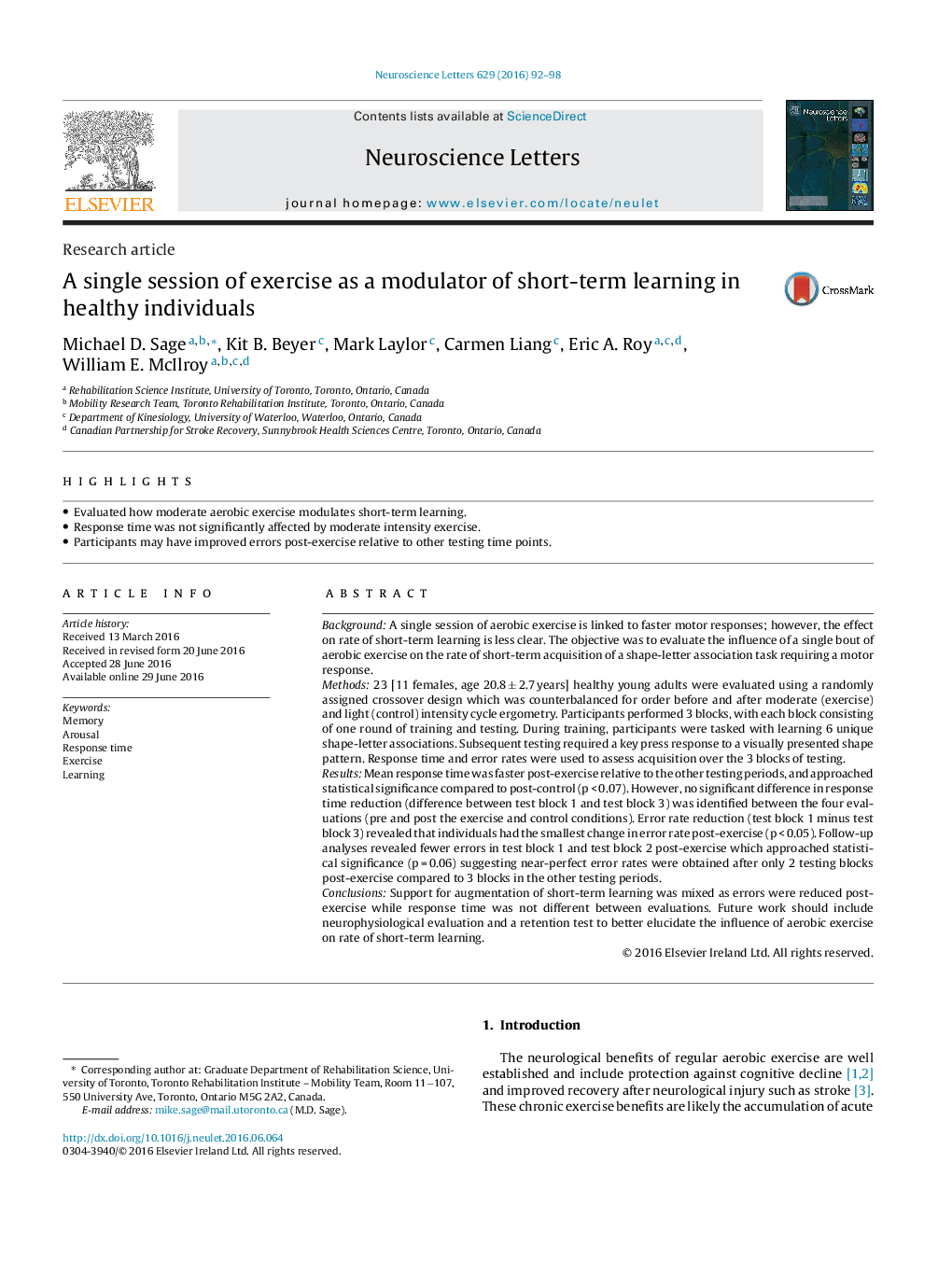| Article ID | Journal | Published Year | Pages | File Type |
|---|---|---|---|---|
| 4343218 | Neuroscience Letters | 2016 | 7 Pages |
•Evaluated how moderate aerobic exercise modulates short-term learning.•Response time was not significantly affected by moderate intensity exercise.•Participants may have improved errors post-exercise relative to other testing time points.
BackgroundA single session of aerobic exercise is linked to faster motor responses; however, the effect on rate of short-term learning is less clear. The objective was to evaluate the influence of a single bout of aerobic exercise on the rate of short-term acquisition of a shape-letter association task requiring a motor response.Methods23 [11 females, age 20.8 ± 2.7 years] healthy young adults were evaluated using a randomly assigned crossover design which was counterbalanced for order before and after moderate (exercise) and light (control) intensity cycle ergometry. Participants performed 3 blocks, with each block consisting of one round of training and testing. During training, participants were tasked with learning 6 unique shape-letter associations. Subsequent testing required a key press response to a visually presented shape pattern. Response time and error rates were used to assess acquisition over the 3 blocks of testing.ResultsMean response time was faster post-exercise relative to the other testing periods, and approached statistical significance compared to post-control (p < 0.07). However, no significant difference in response time reduction (difference between test block 1 and test block 3) was identified between the four evaluations (pre and post the exercise and control conditions). Error rate reduction (test block 1 minus test block 3) revealed that individuals had the smallest change in error rate post-exercise (p < 0.05). Follow-up analyses revealed fewer errors in test block 1 and test block 2 post-exercise which approached statistical significance (p = 0.06) suggesting near-perfect error rates were obtained after only 2 testing blocks post-exercise compared to 3 blocks in the other testing periods.ConclusionsSupport for augmentation of short-term learning was mixed as errors were reduced post-exercise while response time was not different between evaluations. Future work should include neurophysiological evaluation and a retention test to better elucidate the influence of aerobic exercise on rate of short-term learning.
